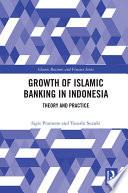
Manajemen Madrasah/Sekolah
Konsep dasar manajemen madrasah, Ruang lingkup manajemen madrasah/sekolah, Bidang garapan manajemen sekolah/madrasah, Perumusan visi, misi dan tujuan madrasah/sekolah, Kepemimpinan pada madarasah, Manajemen berbasis madrasah, Sarana dan prasaran pada madrasah dan sekolah, Penyususnan rencana kerja madrasah/sekolah, Manajemen tenaga pendidik dan kependidikan, Manajemen hubungan masyarakat, Pemasaran jasa pendidikan.
- ISBN 13 : 6231981835
- ISBN 10 : 9786231981837
- Judul : Manajemen Madrasah/Sekolah
- Pengarang : Maya Novita Sari, Nurhidayati, Dumiyati, Fatkhul Mujib, Mochamad Syauqhy Radjfi, Taufik Abdillah Syukur, Tahrir Rosadi, Siyono, Gamar Al Haddar, Vina Febiani Musyadad, Endra Gunawan, Nurhidayati, Dumiyati, Fatkhul Mujib, Mochamad Syauqhy Radjfi, Taufik Abdillah Syukur, Tahrir Rosadi, Siyono, Gamar Al Haddar, Vina Febiani Musyadad, Endra Gunawan, Nurhidayati, Dumiyati, Fatkhul Mujib, Mochamad Syauqhy Radjfi, Taufik Abdillah Syukur, Tahrir Rosadi, Siyono, Gamar Al Haddar, Vina Febiani Musyadad, Endra Gunawan, Nurhidayati, Dumiyati, Fatkhul Mujib, Mochamad Syauqhy Radjfi, Taufik Abdillah Syukur, Tahrir Rosadi, Siyono, Gamar Al Haddar, Vina Febiani Musyadad, Endra Gunawan, Nurhidayati, Dumiyati, Fatkhul Mujib, Mochamad Syauqhy Radjfi, Taufik Abdillah Syukur, Tahrir Rosadi, Siyono, Gamar Al Haddar, Vina Febiani Musyadad, Endra Gunawan, Nurhidayati, Dumiyati, Fatkhul Mujib, Mochamad Syauqhy Radjfi, Taufik Abdillah Syukur, Tahrir Rosadi, Siyono, Gamar Al Haddar, Vina Febiani Musyadad, Endra Gunawan, Nurhidayati, Dumiyati, Fatkhul Mujib, Mochamad Syauqhy Radjfi, Taufik Abdillah Syukur, Tahrir Rosadi, Siyono, Gamar Al Haddar, Vina Febiani Musyadad, Endra Gunawan, Nurhidayati, Dumiyati, Fatkhul Mujib, Mochamad Syauqhy Radjfi, Taufik Abdillah Syukur, Tahrir Rosadi, Siyono, Gamar Al Haddar, Vina Febiani Musyadad, Endra Gunawan, Nurhidayati, Dumiyati, Fatkhul Mujib, Mochamad Syauqhy Radjfi, Taufik Abdillah Syukur, Tahrir Rosadi, Siyono, Gamar Al Haddar, Vina Febiani Musyadad, Endra Gunawan, Nurhidayati, Dumiyati, Fatkhul Mujib, Mochamad Syauqhy Radjfi, Taufik Abdillah Syukur, Tahrir Rosadi, Siyono, Gamar Al Haddar, Vina Febiani Musyadad, Endra Gunawan, Nurhidayati, Dumiyati, Fatkhul Mujib, Mochamad Syauqhy Radjfi, Taufik Abdillah Syukur, Tahrir Rosadi, Siyono, Gamar Al Haddar, Vina Febiani Musyadad, Endra Gunawan, Nurhidayati, Dumiyati, Fatkhul Mujib, Mochamad Syauqhy Radjfi, Taufik Abdillah Syukur, Tahrir Rosadi, Siyono, Gamar Al Haddar, Vina Febiani Musyadad, Endra Gunawan, Nurhidayati, Dumiyati, Fatkhul Mujib, Mochamad Syauqhy Radjfi, Taufik Abdillah Syukur, Tahrir Rosadi, Siyono, Gamar Al Haddar, Vina Febiani Musyadad, Endra Gunawan, Nurhidayati, Dumiyati, Fatkhul Mujib, Mochamad Syauqhy Radjfi, Taufik Abdillah Syukur, Tahrir Rosadi, Siyono, Gamar Al Haddar, Vina Febiani Musyadad, Endra Gunawan, Nurhidayati, Dumiyati, Fatkhul Mujib, Mochamad Syauqhy Radjfi, Taufik Abdillah Syukur, Tahrir Rosadi, Siyono, Gamar Al Haddar, Vina Febiani Musyadad, Endra Gunawan, Nurhidayati, Dumiyati, Fatkhul Mujib, Mochamad Syauqhy Radjfi, Taufik Abdillah Syukur, Tahrir Rosadi, Siyono, Gamar Al Haddar, Vina Febiani Musyadad, Endra Gunawan,
- Kategori : Business & Economics
- Penerbit : Global Eksekutif Teknologi
- Bahasa : id
- Tahun : 2023
- Halaman : 200
- Google Book : https://play.google.com/store/books/details?id=I761EAAAQBAJ&source=gbs_api
-
Ketersediaan :
... Student Management at Islamic Senior High Schools and 21-Century Learning', AL-TANZIM: Jurnal Manajemen Pendidikan ... peserta didik (Pengelolaan peserta didik untuk efektivitas pembelajaran). Cv. Pusdikra Mitra Jaya. Satria, R. et al ...









